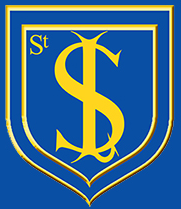Science
Intent
At St Luke’s, we want to ignite children’s curiosity through science and allow them to explore the world around them, so they develop a deeper understanding of how science is at the core of everything in our universe. Delivering engaging and exciting lessons will mean that children develop a passion for science and the thirst for understanding that drives every good scientist. Curiosity driven investigations will make up the core of each topic to inspire amazement and help the children see the world in a different way.
Our aim is to ensure that each child develops the necessary scientific knowledge and investigation skills to allow them to think and experiment with the world around them. Through stimulating practical lessons and engaging knowledge-based lessons, the children will develop the confidence and skills to ask and answer inquisitive questions about the world they inhabit.
The schools core values are at the centre of the science curriculum and are seen in the following ways:
- Love – Science is an engaging and exciting subject that will be used to foster a love of learning in our pupils through exhilarating experiments; interesting topics and lines of questioning that follow the children’s curiosity. Science can also help children find their passion, be it space, exercise, fossils, nature or any of the other topics that our science curriculum covers.
- Courage – As we look at the history of science we see the scientists who had the courage to speak up out against theories and beliefs that they disagreed with. The children will also develop the conviction that scientists need to stand by their results and follow through their lines of questioning. However, admitting that you are wrong also takes courage. Scientists follow facts, not opinions and if the facts disagree with you, then having the resilience to admit that is important.
- Hope – As they learn about the world, the children will develop a positive hope for the future. Knowing how the universe works and how the human race has affected the world, children can use this knowledge to bring about a better tomorrow.
Implementation
At St Luke’s, the Early Years Framework and the National Curriculum is the core of our science curriculum.
Our curriculum is designed upon a base of skills and knowledge that we want the children to learn. This is mapped out across the school in a progressive manner. Teachers plan lessons from medium term planning documents, taken from the long term progression document.
Every lesson will:
- begin with a recap of the relevant core knowledge objectives from previous years or lesson to ensure the key mathematical concepts are understood and so the children are able to engage with the lesson.
- frame subject content in an engaging way through interactive lessons that use discussion, first-hand experience and experiments.
- pursue the children’s curiosity around the topic they are currently studying by allowing time to discuss questions they may have or research answers to these questions.
- have high expectations on both the teacher’s and children’s use of scientific vocabulary and answering in full sentences to ensure children can make links with scientific concepts and have the tools to talk and discuss scientific principles.
Impact
We aim for all children to achieve age related expectations in science at the end of KS2. In order to evaluate the level to which children are retaining knowledge, demonstrating scientific skills and are able to apply their learning to a range of situations, we use a range of techniques.
- -Regular feedback, marking and pupil voice feedback
- -Subject monitoring including book scrutinises
- – Regular low stakes assessment, using a range of approaches
- – More formal assessment to track progress and identify gaps e.g. NFER/End of Key Stage SATs
- – Cross trust/HIAS moderation to ensure secure teacher judgements
- – Cross curricular opportunities to apply the skills through other curriculum area
Science Progression of Learning
Long Term Overview
Year 1
Year 2
Year 3
Year 4
Year 5
Year 6
